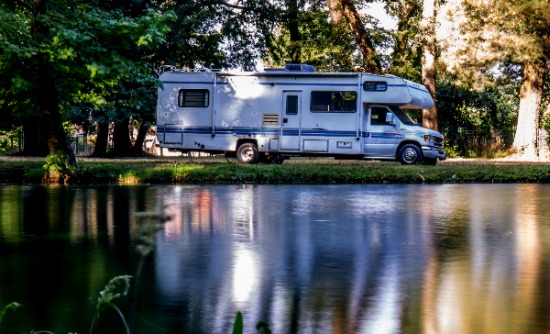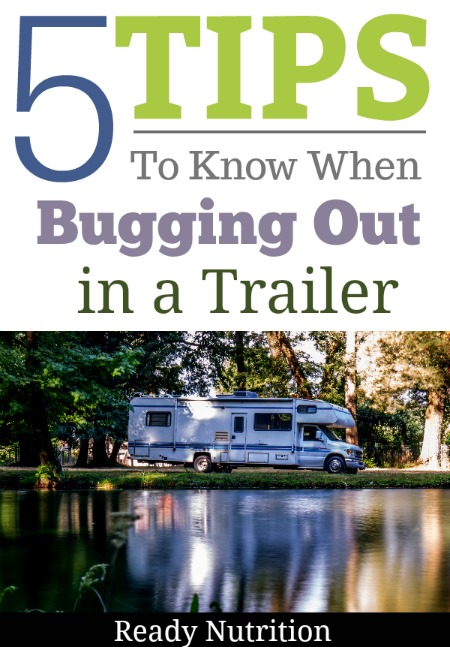
We saw the practicality for campers in The Walking Dead. Granted, they are bulkier and slower but provide essential shelter during a full-on disaster event. Keep in mind, this is not a piece designed to address the human factors of displaced marauders or the “need” for allies and alliances. You’re going to have to assess what is in your area and where you estimate the human “flow” will occur relative to where you’ll be, as well as whatever territorial tribal “fiefdom” or enclave you’ll have to pass through, or around. The article addresses the basics.
A Hefty Price Tag
Firstly, this will run you some money. Then again, you’ll have to weigh whether or not you and (if applicable) your family that you’ll take with you are worth it to you in financial terms. If the answer is “yes,” then you’ll just have to figure out whether you’re going to pay for it or find a deal, but the basics are the same, bottom line.
If you’re “flying solo,” the needs and logistics are less, but they exist and are still the same. Volumes of things needed such as food, water, medicine, etc., are less, but you need to take account of them. One good pick in this regard is one of the older model Bell Travel Trailers. I still have one for when I want to hunt a long distance from home. These are equipped with niceties such as a bed, refrigerator, stove, sink, bathroom, and some storage room, with a folding table.
5 Tips to Follow for Bugging Out in a Trailer
You can tow these with a pickup truck and not a “fifth wheel,” especially when they’re measuring about 25 to 30-feet in length. The tow hitch is usually fitted for a couple of propane tanks to use for heat, for the refrigerator, and for the kitchen stove. The trick for all of this is to maximize your storage within the space allotted. Before you start, there are some things you need to check out first.
- The integrity of the camper body: you need to be really thorough on this one. Ceilings tend to leak, and seams become cracked or they widen. A good way to test is to take a garden hose and run a steady flow of water over the rooftop. You’ll find a leak in this manner. Look for places that have been repaired and then “stealthily” caulked and painted over. Leaky areas include edges where rooftop and walls meet, skylight/rooftop hatches, windows, and vent pipe openings.
- Check your fittings for the propane tanks and their hookups: the nozzles should be able to seal to the bottle and the tubes should not be bent, kinked, or missing. There should be a normal flow between the bottle and the stove or the refrigerator. There should be a heating system that works. Pilot lights should be in order.
- Mileage and tires: Most of these types of smaller trailers have two wheels and a post-stand that retracts for a third point. Check the tires for their condition and also see how it moves when it’s hitched up. The axle and bearings should be in good order and the wheels turn smoothly and straight. Many trailers are sold because they’ve been banged up and their axles and bearings are either bent or not working.
- Cleanliness: if it’s a used trailer and appears to be a pigpen? Then it hasn’t been maintained properly and you can depend on it to be undependable. This isn’t about complete trailer restoration. You can fix some things but don’t allow P.T. Barnum to “sucker” you with a low price on a lemon. This includes the bathroom, and if it has a septic/bathroom tank that hasn’t been cleaned out prior to sale? Don’t even deal with them any further.
- Inspection record: if the trailer has a maintenance log, you should request to see it, and with a sale of good standing, the owner should have no problem with that or with explaining anything the maintenance records cover. Check out the engine and if you can swing it, bring a mechanic with you whom you trust to give you the yes or no nod.
There are many advantages to having a trailer to bug out in if a SHTF scenario occurs or a disaster strikes. During Hurricane Katrina (that I made it through personally: see my articles on it: Part 1 and Part 2), there were tens of thousands of people stranded on the highways. All hotels and motels were filled, the gasoline was gone, and the grocery stores and convenience stores for a radius of a hundred miles were emptied.
A trailer is “hard” shelter from the elements that can give you a base of operations to range out from…that you can return to and rest in, feed yourself, clean yourself up, and sleep in. In “Part II” we’ll go over how you can use it as a residence and how you can make it more permanent and usable in a survival situation.
We have covered a basic checklist of things to look for that I’m sure will be added to. Shop around, and do not sacrifice quality for a lower price. In the long run, the investment will pay off. If the “dings” and glitches are minor, estimate how much it will run or how much effort to fix it and shop accordingly. More to follow in Part II, and until then stay in that good fight. JJ out!

This article was originally published at Ready Nutrition™ on August 9th, 2018







Have a 2015 26′ Apex ~ up graded batteries as well as two 40 gal propane tanks, up-sized
water and waste tanks. It’s tried, true and tested on many off grid camping trips and after everyone we make refinements.
Smart move regarding the refinements after each trip, not sure if you have a bug out location, but a suggestion avoid any and all State and Federal Parks and National Forests unless you can get the trailer up and stabilized off of any well traveled road in the National Forests. These areas will be trash magnets because they know that in an emergency many will head to them, Parks will become over crowded very fast and not everyone will understand proper sanitation and not to use any streams or bodies of water as a waste dumping ground. I have a located a couple of sites within a National Forest that are closed off and abandoned natural gas wells that have been shut down and sealed. I have left the gate up that looks like it is ready to fall down any moment but the hinges and all have been re-enforced as well as insuring that the chain looks rusty an so to does the padlock. About twenty feet in the over grown bruh and weeds I have strung roles of razor wire spray painted a natural matt green. You can do the same thing. The company that drilled the well put up a nice 8ft high chain link fence around the site which is about 150 acres, with a little effort it can be re-enforced to where it is not going to fall over. Think about doing the same thing.